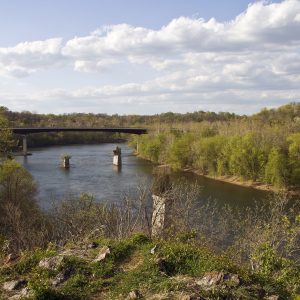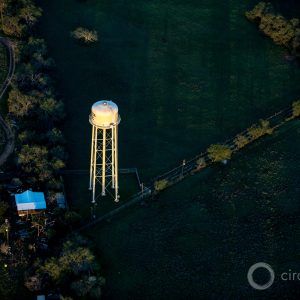The Stream, December 6: Civil War Drastically Changed Syria Water Management
The Global Rundown
The conflict in Syria had significant consequences for water resources in the country, according to a new study. Researchers in the United Kingdom concluded that the floods last winter were the most extreme on record. Oil pipeline projects in the United States could face more costly delays following the decision to deny a federal easement for the Dakota Access pipeline to cross under Lake Oahe. The Google Timelapse tool allows viewers to explore how landscapes across the world, including major water bodies, have changed over the past three decades. The U.S. Congress is close to passing a major water infrastructure bill, but last-minute changes regarding California water projects could prove troublesome.
“Floods don’t just take your home, the place where you should feel safe, they often take your future as well.” –Ed Henderson, co-author of a new study that concluded the winter floods in the United Kingdom last year were the most extreme on record. The floods, triggered by a series of violent storms, inundated thousands of homes and cost more than a billion dollars. (Press Association)
By The Numbers
$84 million Amount that Energy Transfer Partners, the company behind the Dakota Access oil pipeline, says it loses each month the project is delayed. The U.S. Army Corps of Engineers on Sunday denied the company an easement that would allow the pipeline to cross under Lake Oahe in North Dakota. Reuters
In context: Read Circle of Blue’s investigation of the Dakota Access pipeline project and other stranded assets around the globe.
32 years Time covered by Google Timelapse, a tool that uses more than 5 million satellite images to allow users to track changes in land use anywhere on the planet. The images also reveal shrinking lakes, such as Lake Urmia in Iran and Lake Poopó in Boliva. Google Earth Engine
In context: Find out how a growing list of human and environmental pressures threaten the world’s largest lakes.
Science, Studies, And Reports
Syria’s civil war caused major changes in the way the country manages water, cutting reservoir storage and agricultural irrigation nearly in half between 2013 and 2015, according to a study published in the Proceedings of the National Academy of Sciences. Researchers at Stanford University used remote sensing to analyze reservoirs and vegetation, providing new insights into the relationship between conflict and water. Phys.org
On The Radar
The U.S. Congress inched closer to a final deal on a water resources bill that would allow lawmakers to authorize $170 million to help Flint, Michigan address its lead-contaminated water crisis, among other water infrastructure projects. A proposed provision in the bill to allow more water diversions and storage projects in drought-hit California, however, may jeopardize its final approval. The Hill
A news correspondent for Circle of Blue based out of Hawaii. She writes The Stream, Circle of Blue’s daily digest of international water news trends. Her interests include food security, ecology and the Great Lakes.
Contact Codi Kozacek




